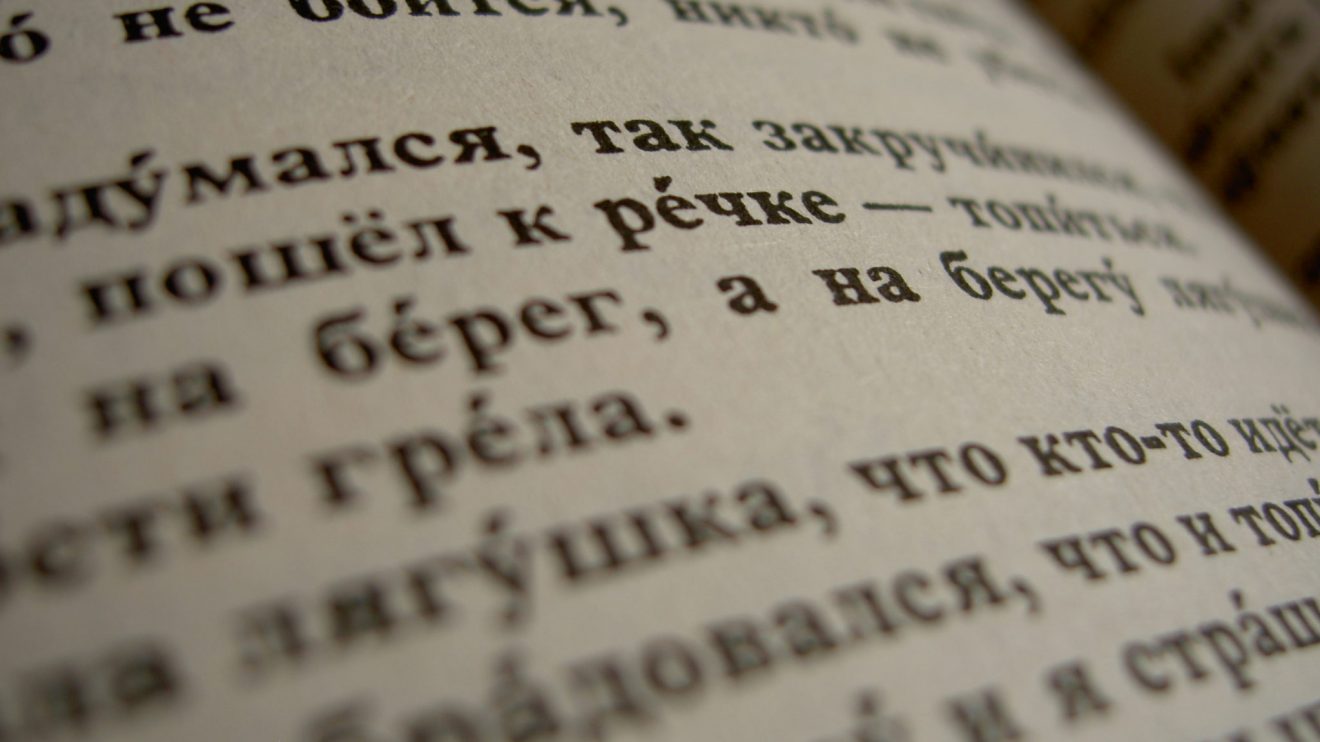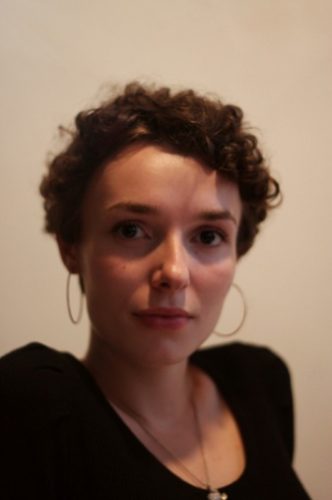Russian is believed to be one of the hardest languages in existence. The fact that it has a different alphabet is intimidating and discourages potential learners from making the very first steps. One might think that years and years are necessary to overcome misunderstandings and master verbs of motion. But what if I told you that you only need two to three years of continuous practice to start speaking with Russians fluently and to understand up to 95% of non-adapted videos and podcasts? Odds are, you don’t believe me. Fair enough: being a Russian native speaker myself, how can I tell? To support my claim, I decided to talk to four foreign friends of mine who are native speakers of different European non-Slavic languages and who impressed me with their Russian skills. I wanted to find out how hard it is to learn the language and – most importantly – whether it is worth it.
Let me introduce you to my interlocutors.
Davide, 23, Italian native speaker

Davide is from Turin, Italy. He has a bachelor’s degree in Interpreting and Translation and is currently studying for a master’s degree in International Communication. He’s been learning Russian for four and a half years, progressing mostly because of his own dedication. We met when he had only been learning the language for 3 years, and I was struck by his level back then.
Harriet, 20, English native speaker
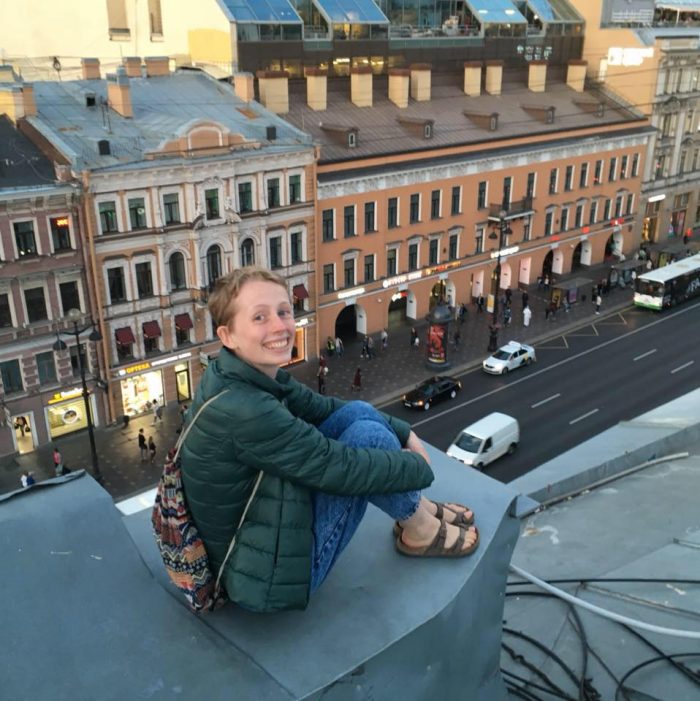
Harriet is from Edinburgh, Scotland. She’s currently studying Modern Languages at Cambridge University. She learned Russian there for 2 years, and she’s been polishing her skills in Saint-Petersburg as an exchange student for the last 6 months.
Roland, 32, French native speaker
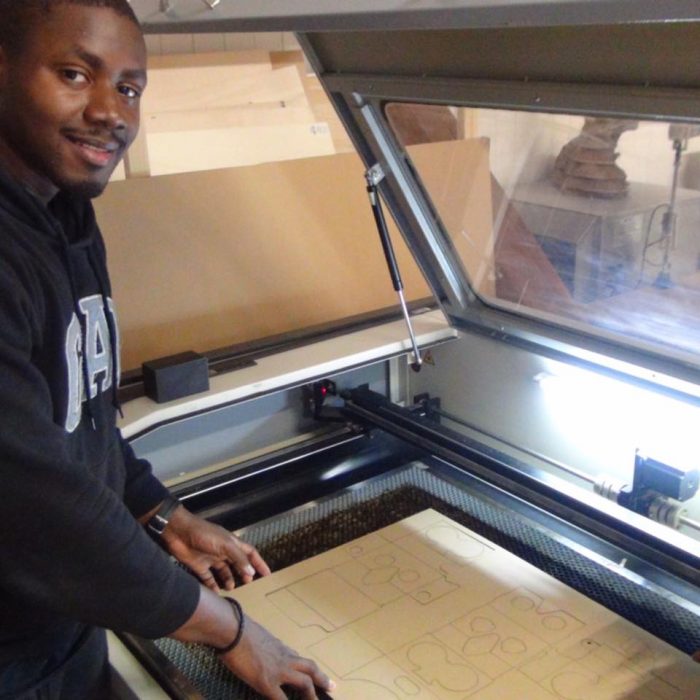
Roland is from Geneva, Switzerland. He’s been learning Russian for about two years: half a year on his own and a year and a half with different teachers. He’s now working in a Russian company where he uses the language for his work purposes and uses the work for his linguistic purposes.
Mila, 20, German native speaker
Mila is from Greifswald, Germany. She’s been learning Russian for almost four years. After a year of self-study, she moved to Russia and enrolled in Nizhny Novgorod University, studying entirely in Russian. She’s currently a student at SPBU’s philology faculty.
I asked each of them identical questions about their experience of learning Russian. To find out whether their responses revealed any differences, dive right in!
1. What was the determining factor in your language choice?
Davide: To be honest, it wasn’t a very conscious choice. The university I went to offered courses in Russian. As for the other languages they taught, I either already spoke them (Spanish, French) or it was necessary to have prior knowledge of them, which I lacked (German). However, everyone would start Russian from scratch. What’s more, they convinced me to learn it by saying that Russian is “the language of the future”. Now, I don’t know to what extent that’s true but Russian is surely one of the most spoken languages in the world, and in that respect I am glad to have learned it.
Harriet: The university offer I received was for French and Italian, but a month before starting first year, I switched to German and Russian. The thing was, I already had decent French/Italian, my German was the weakest of the languages I had studied at school, and Russian seemed like a really interesting challenge.
Roland: I made the decision to start learning Russian when I began working at a Russian company. As I frequently travel to Russia, I am often exposed to the language. This is why I decided to seriously study Russian.
Mila: The determining factor in my language choice was my first trip to Russia, during which I met my then-future (currently ex) boyfriend.
2. What is the nicest feature of the language?
Davide: Probably the simplicity of conditional sentences. In Italian we have 6 separate verb tenses to say what in Russian is said with one past tense and one particle.
Harriet: The different alphabet. It’s very beautiful, especially written by hand.
Roland: I think the language sounds beautiful. I really enjoy its melody and pronunciation.
Mila: Poetry, melodiousness, versatility.
3. What is the hardest part of the language?
Davide: It’s difficult for me to only pick one, so I’d say both verbs of motion and verb aspects. I still have a hard time describing simple movements or choosing the correct aspect.
Harriet: Prefixed verbs of motion – they’re really difficult to comprehend in a strictly academic context (dusty textbooks only get you so far!). I only really got the hang of them after having spent a considerable amount of time living in the country.
Roland: I personally struggle most with the verbs of motion and grammatical cases.
Mila: Verb aspects and my own perfectionism.
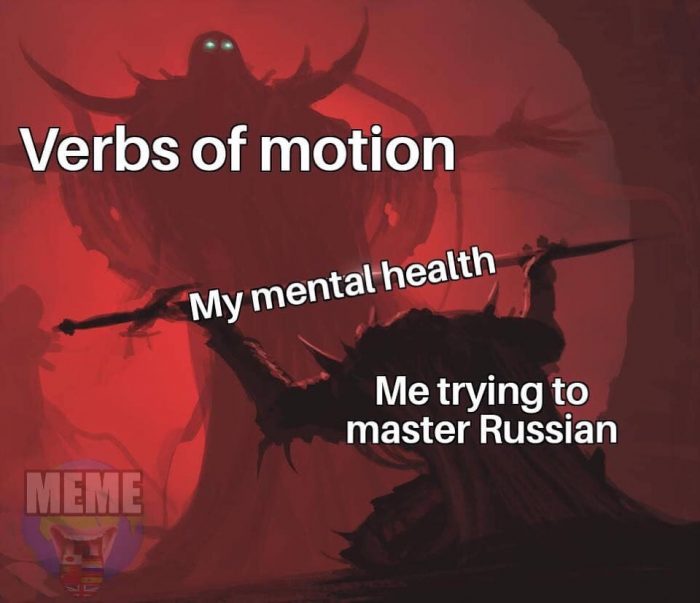
4. What’s your favorite language learning source for Russian?
Davide: At the beginning I used the website LingQ a lot, where you can find loads of materials created by the legendary Evgeniy from Saint-Petersburg. The site allows you to listen to files and to read their transcriptions. If you click on a word that you don’t know, you can see its translation and save it to revise later. I often imported texts from other website.
I also wanted to mention YouTube, a gold mine for anyone willing to learn a foreign language. There are plenty of YouTube channels in Russian. It’s enough to choose some on the basis of one’s interests and start watching videos!
Harriet: Different podcasts – it’s handy to listen to them on the go.
Roland: I like using mobile applications such as Duolingo and busuu to improve my reading and writing skills. On top of that, I regularly watch YouTube videos; it can be political debates, pranks, but also videos specifically made for language learning, e.g. Russian Progress.
Mila: Communication. Asking questions without fear.
5. In what way did learning Russian change your life? Were these changes positive or negative?
Davide: It’s difficult for me to imagine how learning a language could make your life worse :) Learning Russian has allowed me to learn lots of things about a world which was completely foreign to me (Russia and the former Soviet Union), visit this world (I’ve been to Russia three times), meet lots of people and enrich my life in many ways.
Harriet: I started to understand Russian culture better, and I realized to what extent Russia’s image is distorted in the Western media.
Roland: It changed my life in different ways. A few colleagues in my team do not speak English at all, which made it quite difficult to discuss current issues over Skype or even face to face when I was physically in the office in Moscow. Now, not only has it become way easier to understand each other, but I am able to give a little bit of help in the projects that involve Russian customers. Also, the Internet is full of resources in Russian that I can now read for pleasure as well as for work. It gave me another way to challenge myself.
Mila: Definitely positive! I moved to the city of my dreams, I study at a cool university, and, most importantly, I’ve met a lot of wonderful people who had a profound impact on my life and to whom I am eternally grateful!
6. Did your perception of Russian culture and Russians change once you mastered the language? In what way?
Davide: My perception of Russians used to be very superficial and based on stereotypes. I also didn’t know much about the culture. It’s difficult to say whether my image of Russia changed for the better or worse, but it’s definitely more articulated and is not purely based on hearsay. On the one hand, Russians are quite a difficult people to understand and they differ from Europeans in terms of mentality and history. On the other hand, there are many more similarities than differences between the young Russians I’ve met and the youth in Western countries. It’s complicated.
Harriet: I realized that Putin’s politics and Russian people are two very different things. The ability to communicate freely in a foreign language opens up incredible avenues of discussion with native speakers. These avenues are unavailable when you don’t know the language that well, which restrict you to rather superficial encounters and exchanges.
Roland: Yes, because knowing a country’s language helps to understand the culture and vice versa. Watching Russian videos, listening to jokes, etc., allows me to get a feel for how people think and what their cultural references are.
Mila: I started to understand Russian culture better, especially its more ineffable aspects. At this point, the mentality and culture are so dear to me that I often forget I am a foreigner.
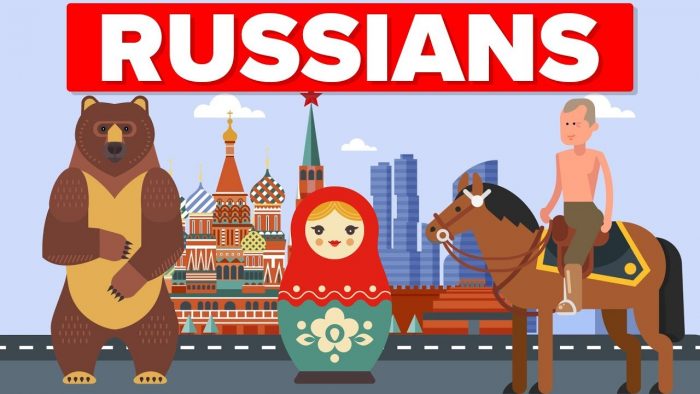
This is what these guys might have thought about Russia before starting their linguistic journey
7. What don’t Russians know about their language?
Davide: In general, Russians don’t have the slightest idea of how complicated their grammar is. For example, they don’t stop to think about which cases they use when speaking. Nor are they aware of some pronunciation nuances. To give an example, the pronunciation of “o” and “a”. How many people realize that in the word Домодедово (Domodedovo) there are three different types of “o”?
Harriet: A friend of mine didn’t believe the verb ехать (ekhat’) existed in Russian.
Roland: A lot of Russian people are not aware that their language actually contains a lot of French words.
Mila: Although Russians acknowledge that their mother tongue is relatively hard to learn, they will never know how funny some of the borrowed and Russified words sound :)
8. What are your three associations with Russian?
Davide: The Cyrillic alphabet, soft consonants, ы.
Harriet: Difficult, beautiful, worth learning!
Roland: Pragmatism, Putin, vodka.
Mila: Philology, love, Dostoevsky.
9. What advice would you give to foreigners who plan on starting to learn Russian?
Davide: First of all, one should understand their own motivation to learn Russian. I acknowledge that in my case there was no initial motivation but the obligation to learn the language at university motivated me not to abandon it. Russian is difficult. One can learn it with patience and dedication (as with almost everything) but it takes time, so motivations and interest are fundamental, especially when it comes to self-study.
The second piece of advice I would give: don’t spend too much time on grammar! If one tries to speak Russian without confusing a single case, aspect, or preposition, one will end up not speaking at all. It’s better to start speaking while you’re still bad at it (it’s also much more fun!).
Harriet: Study little and often.
Roland: I would suggest not to think too much about how difficult the language is, not to be afraid of speaking with mistakes and to learn a little bit of the language regularly, favoring regularity over volume. And most importantly, travel to Russia at some point.
Mila: I want is half of I can :)
I hope that these amazing people motivated you to put aside all the unnecessary worries and inspired you to explore rich forests of Russian grammar and vocabulary without fear of getting lost. If you want to do this on your own, Language Heroes is the right project for you!
I wanted to thank Harriet Phillips and Robert Brent for helping me edit and proofread this text.


